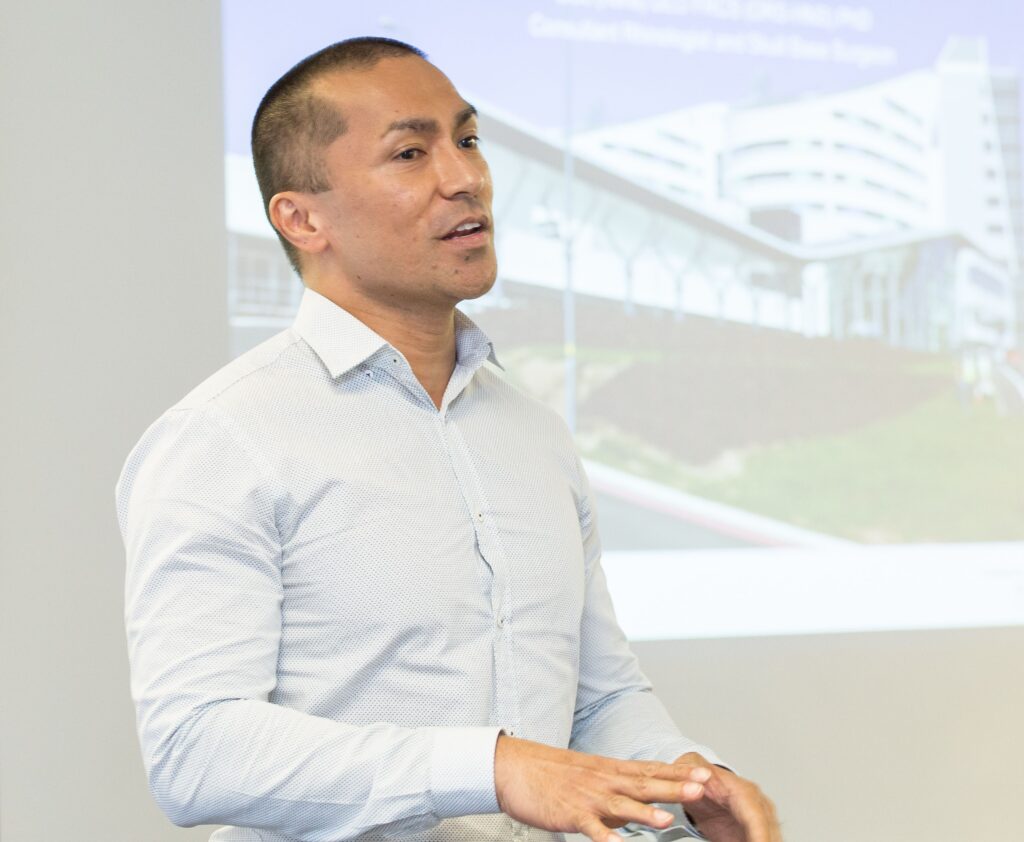Miles is a long-standing member of our Medical Committee and provides invaluable insight and support to our clinical and healthcare-related activities.
About Miles...
Miles Levy is a consultant endocrinologist and honorary professor of Clinical Endocrinology at the University of Leicester Hospitals NHS Trust. His research interests include the pituitary and adrenal gland and genetics of endocrine tumours.
He has co-led the initiative to change the name of diabetes insipidus to AVP deficiency. He is on the Board of the International Society for Endocrinology, is an elected council member for the Society for Endocrinology, is president-elect and council member of the Diabetes & Endocrinology Section of the Royal Society of Medicine, and a member of the Medical Committee for The Pituitary Foundation.
He lectures internationally on endocrine tumours and is a regular teacher at Leicester Medical School. He co-authors the endocrinology chapter of ‘Kumar & Clarke’, co-authored ‘Endocrinology at a Glance’, was editor of The Endocrinologist, editor in chief of 'You and Your Hormones', and co-editor of the neuroendocrine section of Endo-text. He still does GIM on-calls. Most importantly, Miles supports Arsenal Football Club and plays in a brilliant band called the Levy Circus.
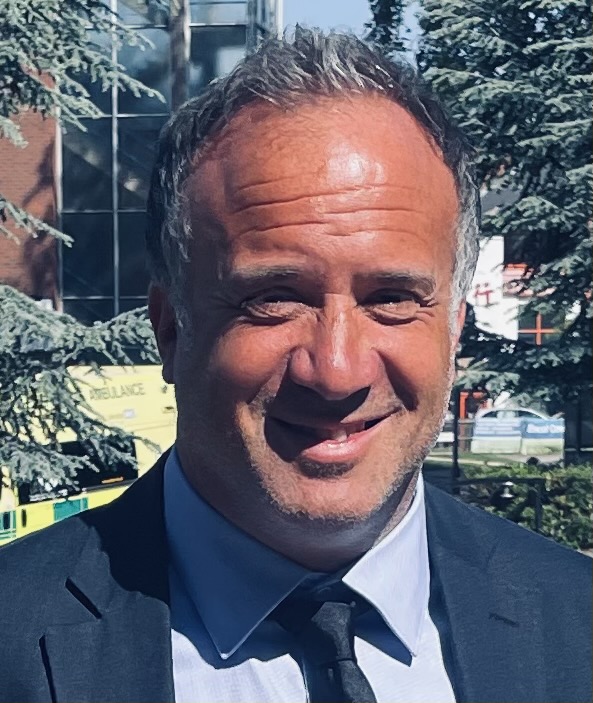
How long have you been a member of the medical committee, and what does the role involve?
I’ve been on the medical committee for a few years, and it is a privilege to try and help patients with pituitary problems around the UK. Essentially the role involves helping The Pituitary Foundation staff like Emma, Jay, Pat and Nesta who may have clinical sense-checking questions, as well as answering clinical concerns from patients. I have also helped update some of the information material on the excellent Pituitary Foundation website with other colleagues.
There are always changes and improvements in medicine, so we want to make sure the advice is in line with state-of-the-art clinical practice. We meet online every few months, and much is done by email communication in between. I have been involved in webinars to teach patients about aspects of pituitary disease as well helping with awareness weeks on specific conditions. The face-to-face meetings I like the best as I learn more about pituitary conditions by chatting to patients who are the real experts because they live with their problems every day and I always pick up new things that I might not have thought about.
The face-to-face meetings I like the best as I learn more about pituitary conditions by chatting to patients who are the real experts because they live with their problems every day...
Why did you start volunteering?
Basically, I was asked and said yes straight away. I have always been massively interested in the pituitary gland physiology since I was a 14-year-old schoolboy in Dr Applin’s biology class at Chigwell School; he described the pituitary gland as the ‘conductor of the endocrine orchestra’ and for whatever reason I was hooked. I think if he knew I was on the Medical Committee for The Pituitary Foundation, he would be proud of me.
Every year I do pituitary endocrinology, I am more interested in it and have more questions than answers. When patients send queries to Pat McBride, I really like trying to help. There is a balance between giving good advice whilst not appearing to be a ‘backseat driver’. Patients are usually under good endocrinologists elsewhere in the UK but occasionally if patients cannot get through to their local specialist team, it can be helpful to give quick advice. Most endocrinologists are cool, and good team players, so do not mind people stepping in if it is helpful and timely.
I really enjoy being part of the bigger UK pituitary team which involves other doctors, nurses, patients and their families. I feel it helps me feel connected to the wider world of pituitary medicine and makes me realise most the stuff I worry about, other people do to, and it is good to ask for help (I do all the time)!
What have you enjoyed most about being a volunteer?
Probably the thing I am most proud of, and therefore gives the most satisfaction, is the work we have done together on renaming cranial diabetes insipidus to AVP deficiency. It has been a real collective effort, and patients have been vital in driving this forward. The ‘powers that be’ listen much more to patients than doctors. It has been massively humbling to work with dignified family members who have lost loved ones through mismanagement of this condition. I hope that if our work to change the name and increase awareness of this, and other pituitary conditions, saves some lives, then they will not have died in vain.
The really satisfying thing is that the work we have done in UK has also been adopted by the whole world and we have been a major part of this. There is much to be done together and still things we need to improve on, and I am convinced the answer is to work with patients to change the pituitary world for the better and there is loads to look forward to!
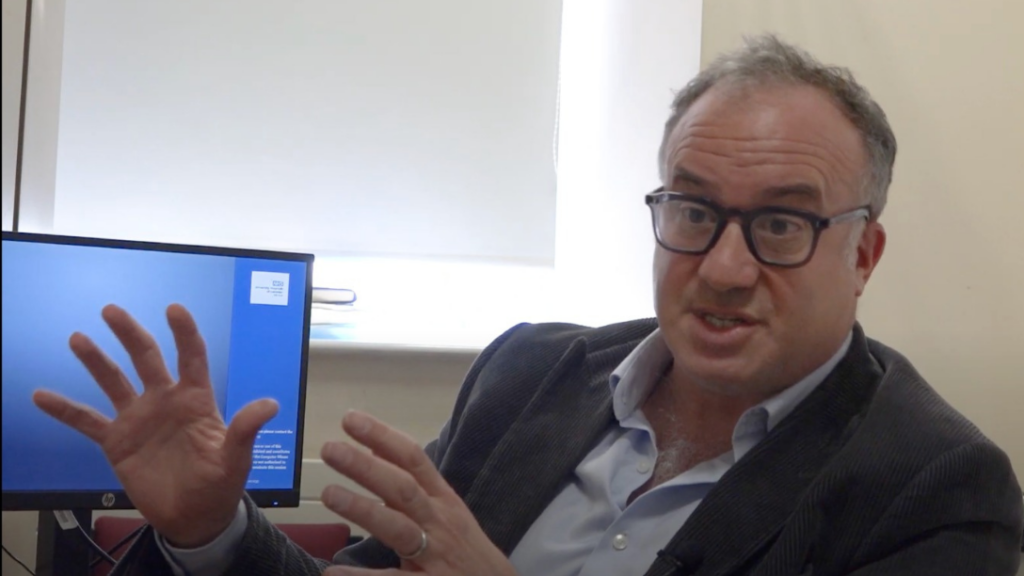
In this spotlight profile we hear from Ketan, who lives with acromegaly and is a member of our Lived Experience Committee.
My Story
Ever notice how going through something tough can give you this unexpected urge to help others who are just starting that journey? Volunteering often springs from that exact spot – turning your own "been there, done that" moments into a force for good! I started thinking, "How can I give a little back and get more involved?" Then, as if by magic, the opportunity to join their new Lived Experience Committee (LEC) arrived. I was genuinely thrilled at the prospect because I've learned first-hand just how important it is for the voices of people who actually live with these conditions to be heard loud and clear.
In all honesty, living with a pituitary condition (or caring for someone who does) can feel like being dropped into the middle of a maze blindfolded. You're dealing with a whirlwind of doctor's appointments, baffling medical jargon, emotional ups and downs, and figuring out a whole new 'normal' for daily life. It can feel pretty scary and incredibly lonely at times.
During my own "what on earth is happening?" phase, The Pituitary Foundation was a lifeline. They offer fantastic support, clear information, and perhaps most importantly, a sense of community – letting you know you're not the only one going through this. They help people directly affected and their families too. But I reached a point where I didn't just want to get help anymore; I wanted to be part of the help. Taking the understanding I'd gained – often the hard way – and turning it into a tool to help The Foundation improve things for everyone? That was seriously motivating. It felt like the perfect way to give back and make sure those hard-won insights weren't wasted.
"The goal for the committee is to bring together a real mix of people - patients, family members, carers - all sharing their unique, real-world experiences."
Before diving in, we had a chat about what the Lived Experience Committee was all about. The Foundation explained their vision: they wanted the LEC to be a key part of ensuring that everything they do truly revolves around the needs and perspectives of the people they serve. By setting up this formal group, they're making sure there's a proper structure to listen to, and actually use, the wisdom of those who've walked the walk. The goal for the committee itself is to bring together a real mix of people – patients, family members, carers – all sharing their unique, real-world experiences.
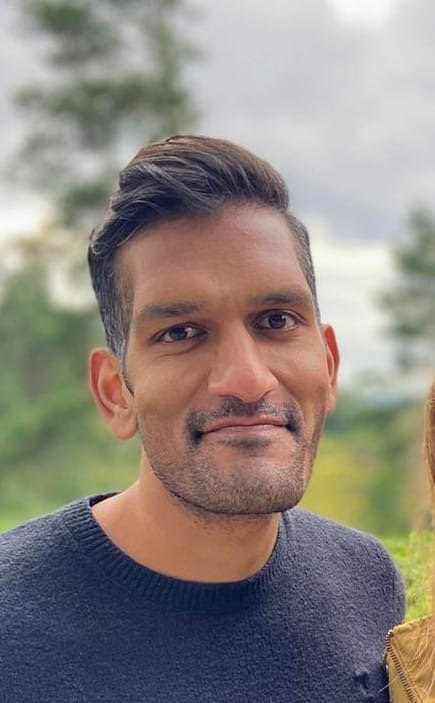
What does my volunteer role involve?
So, what do we actually do in the LEC? Our role is pretty varied and, I think, really important. We chat with The Foundation's staff and trustees, offering our perspective. We look over patient information – things like leaflets, website pages, and guides – to make sure they're easy to understand, genuinely helpful, and written with empathy (goodbye, scary medical jargon!). We also chip in on how support services are developed and delivered. The big idea is simple: services designed for patients should be shaped by patients.
This 'lived experience' angle is gold. It helps spot the little things, the potential pitfalls, or the bits of information that might be missing. It ensures that the way The Foundation communicates actually connects with the people reading it, because it reflects the practical, emotional, and day-to-day realities of these conditions, not just the clinical facts.
And you know what? Volunteering hasn't just been about giving back; it's been amazing for me personally, too. Being part of the committee and hearing stories from people with different pituitary conditions and facing different hurdles has massively broadened my own understanding. My own experience felt unique and, at times, isolating. But listening to others share their journeys has offered incredible new perspectives. When you gather all these different experiences together, you create something truly powerful that can genuinely shape better resources for others. That feels incredibly rewarding.
What have you enjoyed the most in your role?
Our LEC meetings have covered all sorts of ground, but I've particularly loved the discussions around advocacy and support. It's been fascinating to reflect on the emotional side of things – the common worries we all shared, the kind of practical, non-medical advice that would have been a game-changer back then. We had a really lively debate about how The Foundation could reach more people using different social media and online platforms, considering how everyone from teenagers to grandparents gets their information these days.
I'm genuinely excited about where we can take this. Knowing that the conversations we're having now could lead to resources that offer real, practical help to someone feeling lost or overwhelmed in the future… well, that's a fantastic reminder of why the LEC is so important.
To anyone thinking of volunteering...
Based on all this, my message is simple: give volunteering a try! The benefits ripple out way beyond the organisation itself. It's a brilliant way to grow as a person, maybe pick up some new skills (hello, teamwork and feedback!), and boost your confidence. Plus, it connects you with awesome, passionate people who care about the same things you do – say goodbye to feeling isolated and hello to belonging!
Most importantly, it’s a real, hands-on way to make a difference. Seeing your time and insights actually lead to positive change? That’s incredibly motivating. It lets you turn your own experiences, good or bad, into something constructive and contribute to something bigger than yourself. What's not to love about that?
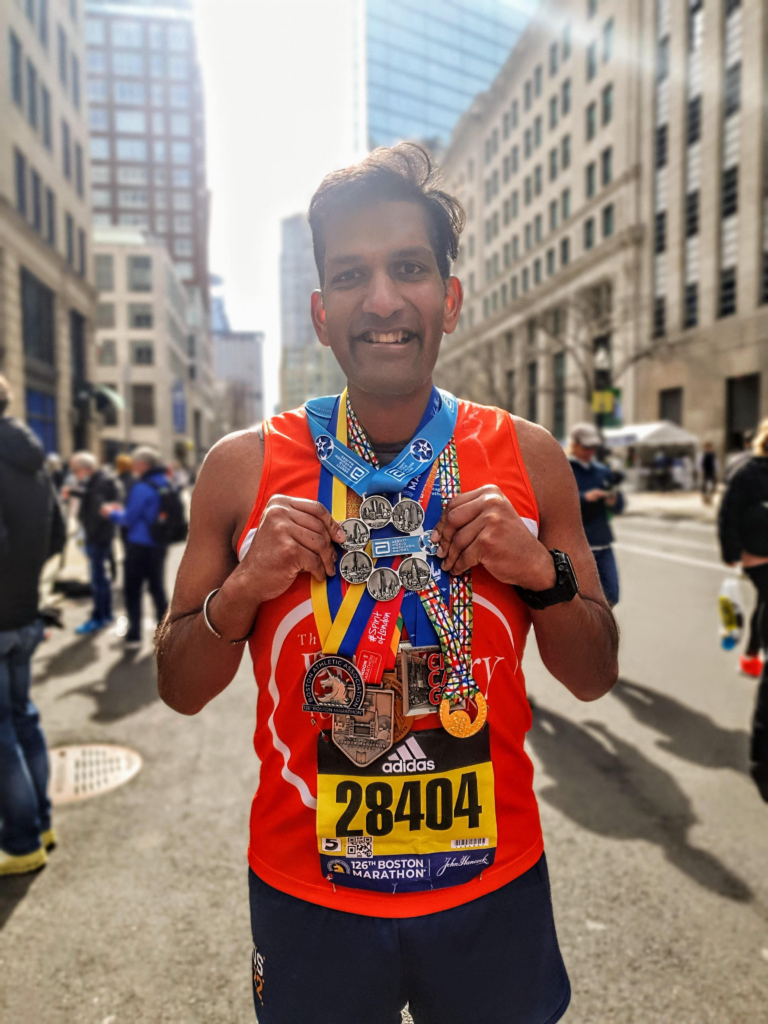
Meet Ann, a volunteer with The Pituitary Foundation who volunteers on the General Information Helpline.
My Story
In 2007, after years of blocked sinuses and sharp head and face pains, I had surgery to remove a mucocele blockage in my sphenoid sinus. A week later I was informed the blockage was in fact a pituitary tumour that had burst into my sinus cavity. Suddenly everything made sense.
I had been on cabergoline for slightly high prolactin for several years. It didn’t meet the threshold for an MRI, so I’d never had one. Pathology from the sinus surgery revealed the tumour was growth hormone producing, although my IGF-1 level was within the normal range. I didn’t really have noticeable features of acromegaly at that stage, although my feet and hands had become wider.
I had pituitary surgery about a year later. It was only after this that my IGF-1 level started to rise and I became very unwell with debilitating head and neck pain and fatigue. A small remnant of tumour that remained around my carotid artery was to blame.
I tried various combinations of medications and had radiotherapy in 2013. In 2015, I started Pegvisomant injections, after which I started to get my life back. My symptoms didn’t disappear, but they became much more manageable and I started to look for new things for do.
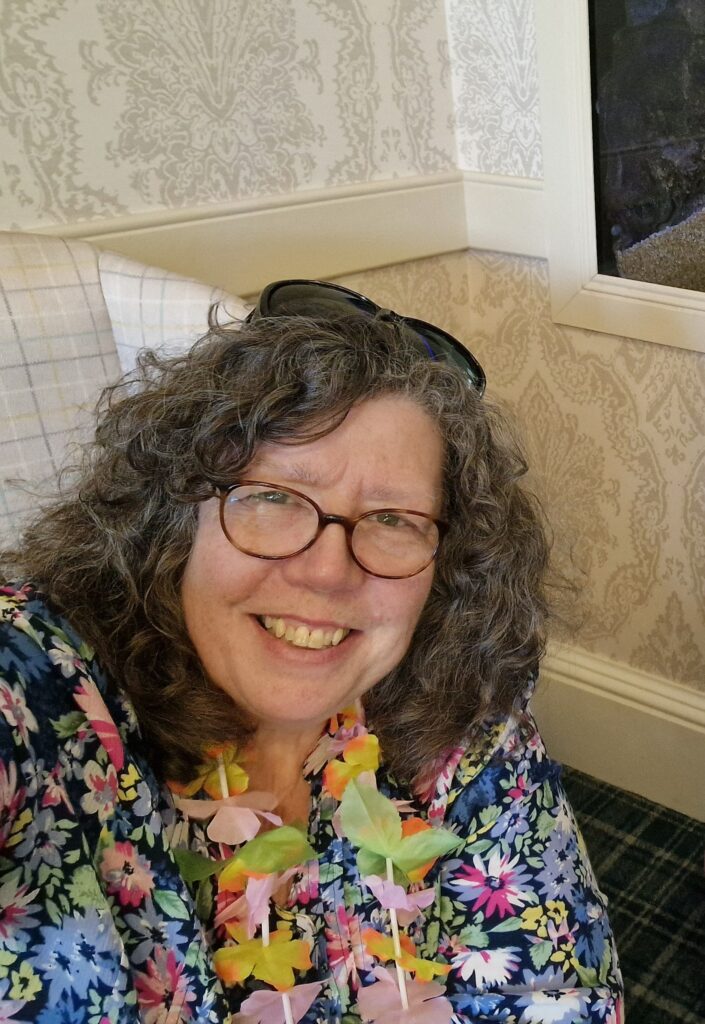
The Helpline
By 2017 I was looking for a sense of purpose, something that made use of my experience and the knowledge I’d gained over the years. I started volunteering on the telephone helpline and now do a three-hour shift, twice a week.
You never know who will call or how busy you’ll be. Every call, and every caller, is different. Most calls are from patients, sometimes a partner or parent, but I’ve even had a call from an endocrinologist!
People may come with a specific query, such as looking for sick day rules for adrenal insufficiency, or information about a particular condition. Recently there have been a lot of calls about the shortage of desmopressin spray for AVP-D. In these cases, we can provide the information required or direct the caller to the appropriate information on our website or in one of our YouTube videos.
Other callers are looking for wider support. Being diagnosed with a pituitary condition can be challenging, whether it’s been a sudden, unexpected diagnosis or after many years of ill health and unexplained symptoms. Once diagnosed, managing a lifelong condition can present its own challenges. The main thing is to listen to the caller, encourage them to tell you about their situation and let them know how you might be able to help. This might included signposting to other resources, such as a Local Support Group (it’s great that we have had a number of new groups starting around the country) or a telephone buddy with the same condition. Sometimes, just being able to talk to a fellow patient is enough and provides the reassurance the caller is looking for.
Why I Volunteer
It’s wonderfully interesting to speak to people from all over the UK and sometimes beyond, and to hear about their fascinating journeys with a pituitary condition. I’ve also learnt so much more about pituitary conditions, health and living with a chronic condition.
"There's no better feeling than when a caller tells you how helpful the call has been..."
When I started on the helpline it was probably more about giving back and occupying myself. I hoped I could help but I had no idea how incredibly rewarding it would be and how it can really make a difference. There is no better feeling than when a caller tells you how helpful the call has been, or how much better they feel having been able to talk to someone who understands their situation. It’s one of the best things I’ve ever done and if you’re thinking of giving it a go, I can thoroughly recommend it.
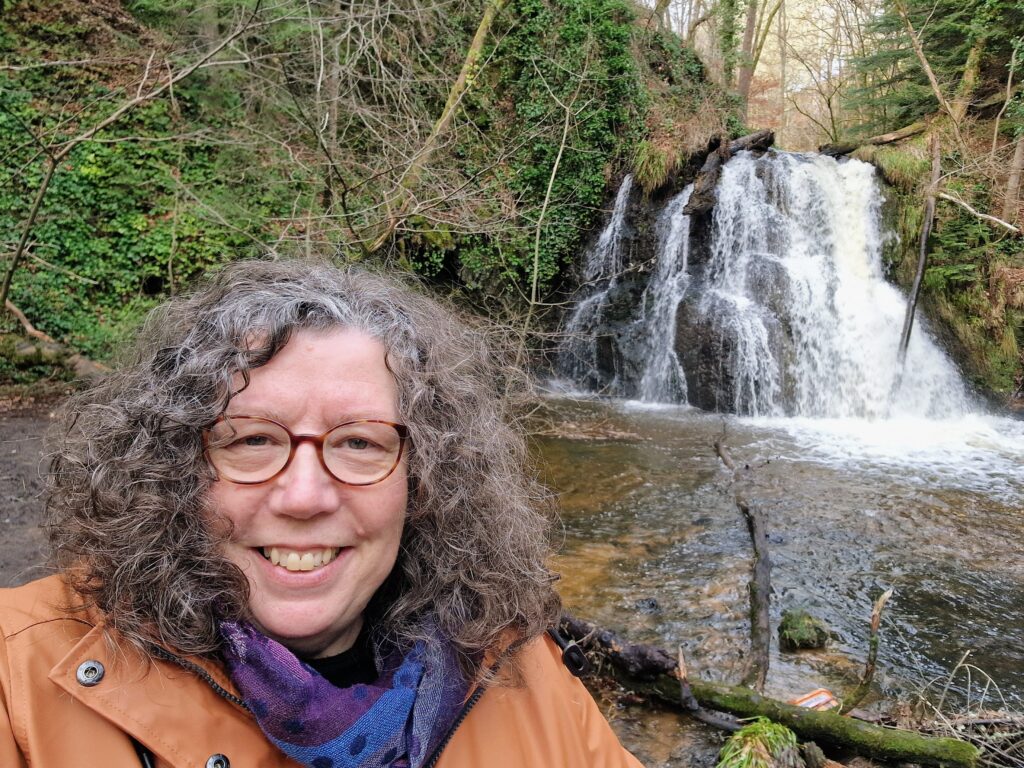
The first World Hormone Day takes place on April 24th to raise awareness of the vital role of hormones in rare and chronic disease. Under the banner of #BecauseHormonesMatter, the campaign brings together the global endocrine community to share the small steps everyone can take to improve hormone health and to raise awareness of the signs of endocrine disease.

The Pituitary Foundation joins the European Society of Endocrinology (ESE), the European Hormone and Metabolism Foundation (ESE Foundation), and partners worldwide to put hormones in the spotlight. Building on the success of European Hormone Day over the last three years, this new global event calls for action to put hormones at the forefront of public health conversations.
Why we're supporting #BecauseHormonesMatter
The pituitary gland plays a key role in producing important hormones, like cortisol, growth hormone, oxytocin and more. It is often referred to as the ‘master gland’ because of its essential role in hormone production. This World Hormone Day, we’re putting the pituitary in the spotlight and highlighting the role of pituitary hormones in health and disease.
Watch the video below to find out more about #BecauseHormonesMatter!
Want to find out more about #BecauseHormonesMatter? Take a look at the World Hormone Day website!
Hormones and pituitary conditions
Conditions affecting the pituitary gland can have a huge impact on a person's hormone levels and function, which can have knock-on effects in other areas of their life and health. Around 70,000 people in the UK live with a pituitary condition, yet delays in diagnosis and treatment are common partly due to lack of awareness of these conditions and their symptoms. To combat this, we want to help everyone recognise the early signs and symptoms of endocrine disease.
These include:
- Unexplained weight gain/loss
- Sensitivity to cold
- Changes in appetite
- Brittle hair and nails
- Fatigue
- Dry and flaky skin
- Onset of depression
- Excessive thirst
- Signs of early or late puberty (outside ages 8-13 in girls and 9-14 in boys)
- Adult-specific: loss of libido, irregular menstrual cycles, infertility
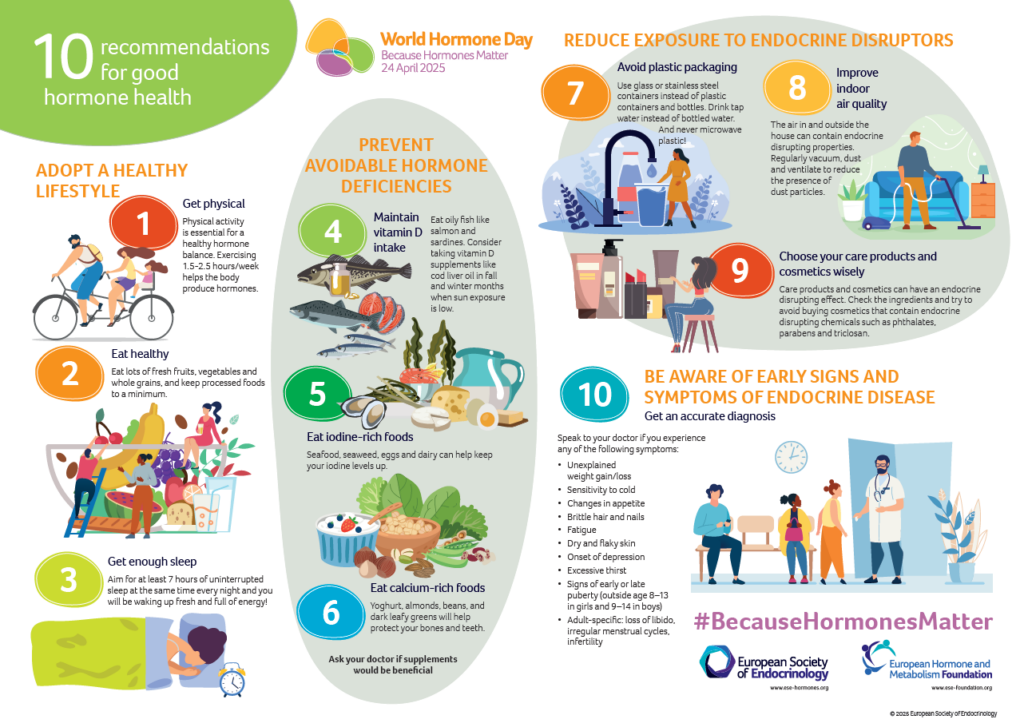
Want to know more about hormones and pituitary conditions? See our information pages.
Want to get involved?
There are many ways you can get involved in World Hormone Day! See below for ways you can celebrate and take part in the #BecauseHormonesMatter message.
Join an event
Why not join in with one of our hormone-focused online events, to learn more about hormones and their impact on health and disease?
Get stuck in with social media!
Social media is a great tool for raising awareness and getting involved in campaigns. You can post your own content using the #BecauseHormonesMatter hashtag, or follow our social media pages to see what we're sharing.
You can also follow us on LinkedIn @The Pituitary Foundation, and on Twitter/X @Pituitary_org.
This October is Pituitary Awareness Month, and this year we are going ‘Back to Basics!’
We want to make sure that everyone knows about the pituitary gland, hormones, and the importance of both in the body. We'll also be sharing some advice on how to speak to your friends and family about your pituitary condition.
There’s lots of ways for you to get involved this October! We’ll be hosting a series of online events, sharing some specific resources, and encouraging you to speak to your community about pituitary conditions.
This is what Susan’s nominator said:
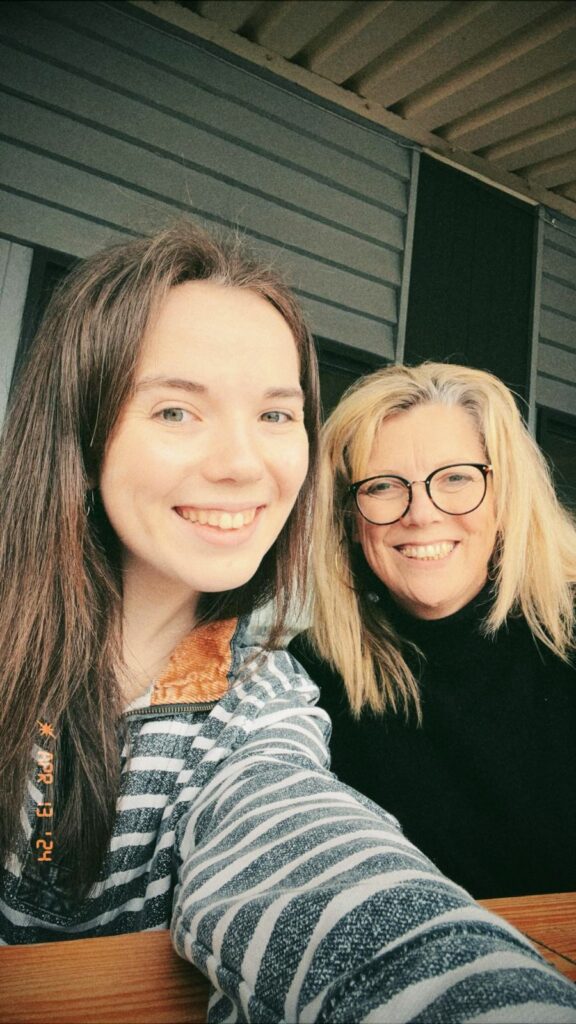
My mum is my pituitary hero because she has always been right by my side throughout my treatment. Being on cabergoline really affected my mental health and my cognitive ability so she fought my case to get me extra support in school. From paying for expensive hair products to prevent as much hair falling out as possible to researching scientific papers about how cabergoline affects cognitive function, she was always there as a shoulder to cry on, someone to celebrate with, someone to reassure me or someone to just listen. throughout my treatment I transitioned from paediatric services to adult services and it was a very rocky transition, which included the discovery that the tumour will probably be for life, and if I stop medication, I will probably have to go back on it at some point as it’s likely the tumour will grow back. My mum has always been right by my side to make sure that I am ok and as well as I can be - she is my pituitary hero 🧡
This is what Susan told us:
What’s your story?
My daughter Lucy was diagnosed with a Macro Prolactinoma when she was 15 years old in February 2019. She was started on the medication Cabergoline to reduce her tumour, just as we went into the first lockdown. During this time, she was struggling with studying at home, her medication made her feel nauseous, she was tired and her mood began to suffer. This was, however, blamed on Covid, as many teenagers were struggling. Investigating with the help of the pituitary foundation I was able to show the school how these brain tumours could cause brain fog, tiredness and lack of concentration. I was able to advocate for her to get her some extra support at school. It was not the effects of COVID, it was her prolactinoma that was causing her difficulties. It has taken Lucy time to come to terms with the way this tiny thing she calls “Brian” affects her and has changed her life plans, in making learning more difficult than it used to be.
Why you got involved?
I am overwhelmed that Lucy nominated me for this award. I have acted as any Mum would have when their child is upset and distressed by something. I have listened to lectures given by the Pituitary Foundation to try to understand the effects that this tumour has on her health. We look at ways to modify and make small changes, such as building in rest days, repetitive, chunked learning to pick up new skills, which will allow her to still do all the things that she wants to achieve in life. Thankfully she is now thriving in her new plans for her future.
What would you like to see happen in The Pituitary Foundation for next 30 years?
I would like the Pituitary Foundation to advocate for more research into the medication used to treat conditions, as there is not much of an evidence base at present on side effects, especially in under eighteens. I would also like to see it push for a greater understanding in the general population about the effects on day to day living that pituitary conditions can have on people.
This is what Sara's nominator said:

"Sara Lomas is an absolute marvel and joy to be around. She constantly challenges herself and runs/climbs/abseils through the pain living with Cushing's to raise awareness and funds for The Pituitary Foundation. Not only is she a very warm and welcoming person who has started a new support group in Nottingham, she has also been nominated for a Pride of Britain award for all her achievements as a Pituitary Foundation volunteer."
This is what Sara told us:
What’s your story?
What an honour to be selected as a Pituitary Hero.
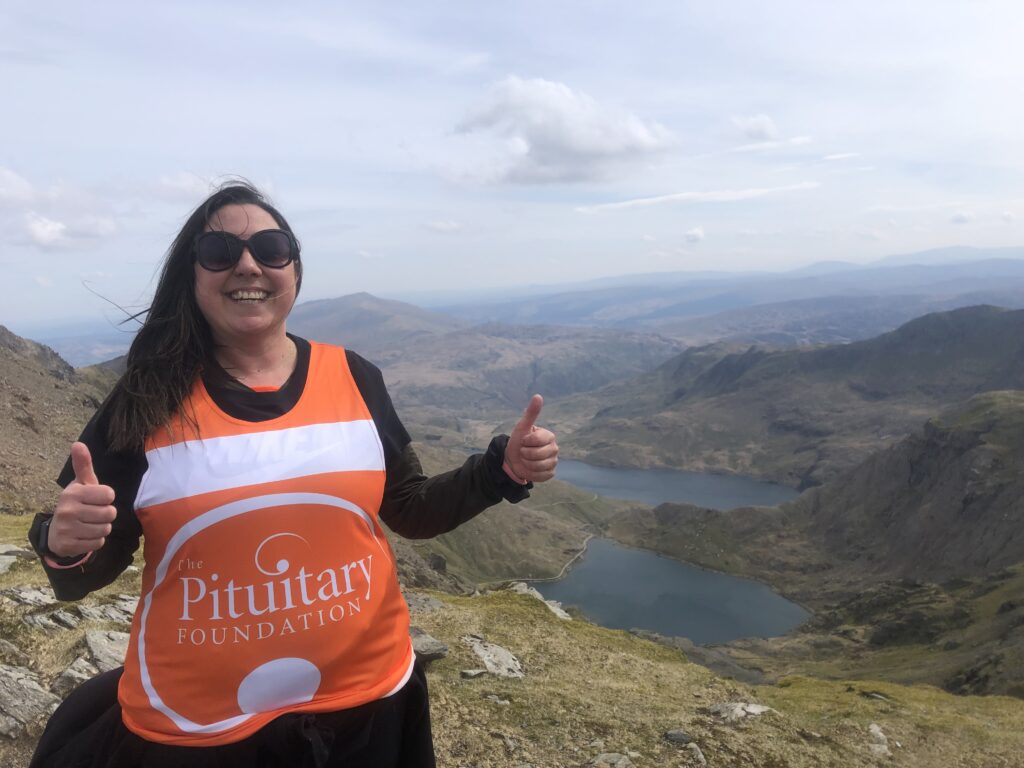
I was diagnosed with Cushing's Disease in 2022, had successful pituitary surgery that year that caused temporary AVP-D, and am now happily in remission. In hindsight I probably had the disease for about 10 years and by the time I had my surgery I was very poorly and felt very scared and lonely. I turned to the internet for answers and discovered lots of them through The Pituitary Foundation and the Cushing's UK Facebook group. Suddenly I felt supported and consequently stronger. I decided I needed to help others get the support they need.
Why you got involved?
My recovery from Cushing's is slow and difficult. However, I started fundraising for the charity by setting myself challenging goals and asking people to sponsor me. I've climbed a mountain, competed in a 10K run, half marathons and marathons, done bake sales, abseiled off the roof of a hospital, completed one million steps in a month, and got shortlisted for a Pride of Britain award for my efforts. I've set up the Nottingham Support Group and become an Ambassador for the Charity, hoping to keep making a difference to the lives of those affected by pituitary diseases.
What would you like to see happen in The Pituitary Foundation for next 30 years?
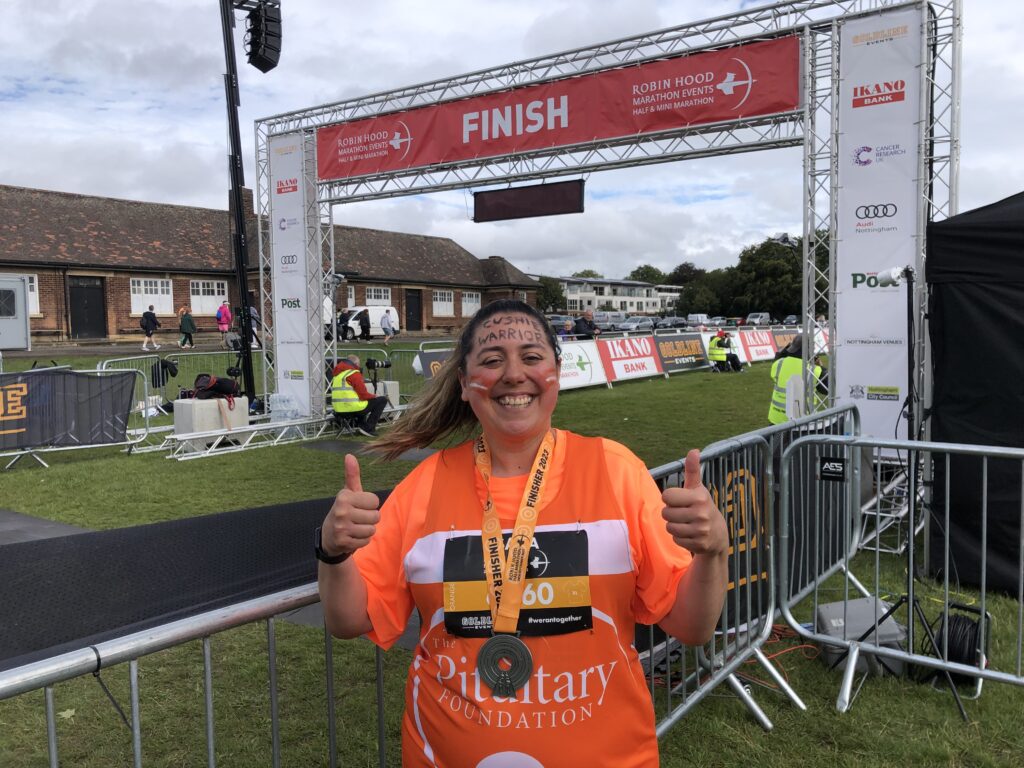
Going forward I would love to see the charity continue to grow and offer support groups in all areas of the UK as well as many more online events for those less mobile. It's been great to see the charity expand their psychological support and I hope this continues. It would also be fantastic to see them better represented within hospitals so patients know how to access more information and support. Knowledge is power after all. The Pituitary Foundation is a truly amazing charity, I've met some wonderfully inspiring people since I started volunteering with them and I look forward to continuing to support them in the future.
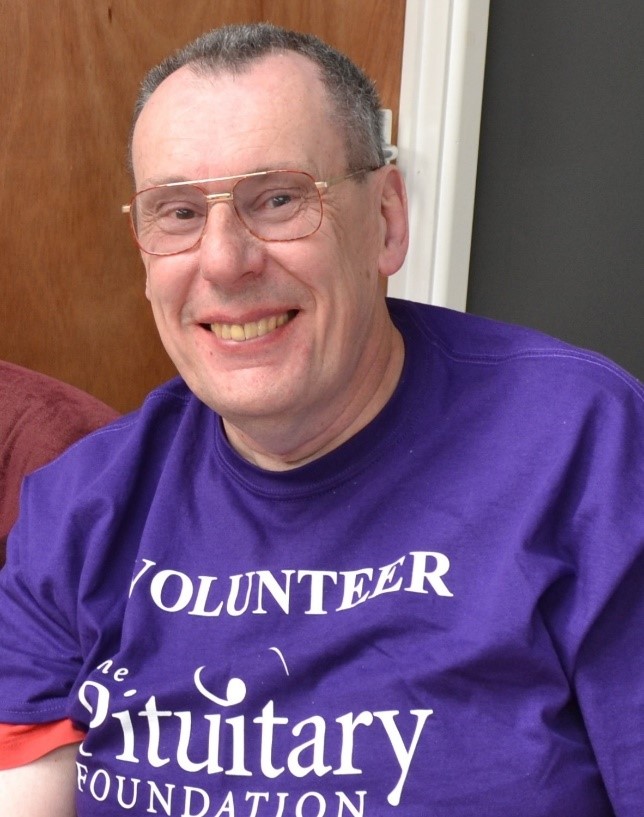
This is what Steve's nominators said:
"Steve, to me also known as the Happy Hippo, initiated the Birmingham Pituitary Patient Support Group back in 1995/96'ish and headed this very successfully for many years. I don't know all that Steve has been involved with but I believe he has been a Telephone Buddy, proof reader, given website support, taken part in training events, spoken as an 'expert patient', attended professional medical seminars and conferences on behalf of the Foundation & no doubt other things that I am not aware of."
.
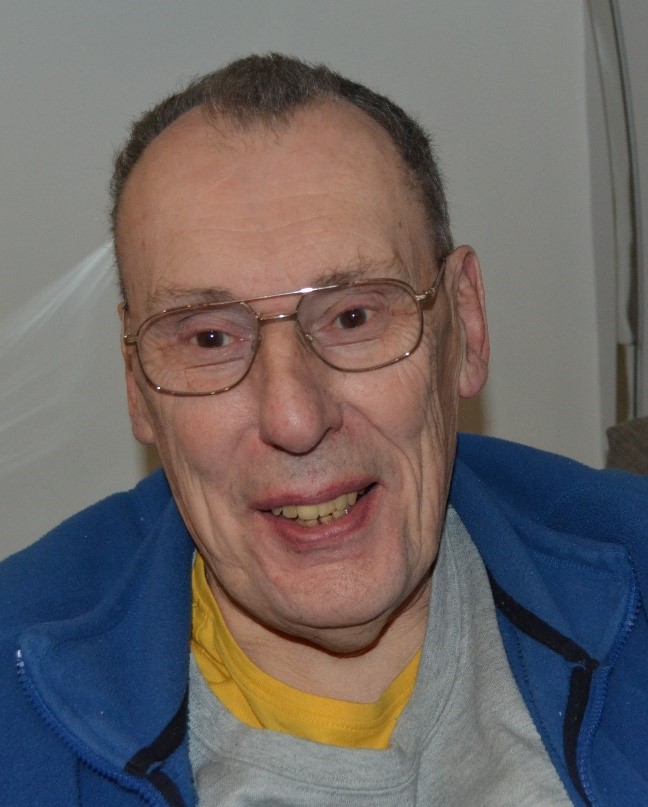
This is what Steve told us:
I was diagnosed in 1987 with acromegaly. I underwent surgery in 1988 and radiotherapy in 1992. I have been involved with The Foundation almost from its launch. I formed and ran the Birmingham Support Group for many years. I was a Foundation Trustee and also worked on the patient telephone helpline for 14 years. I enjoyed working on the helpline knowing that I helped many patients over the years. I currently support The Foundation at various endocrine events and I also proof read our magazine Pituitary Life. I share my experiences as an expert patient with a number of endocrine research projects.
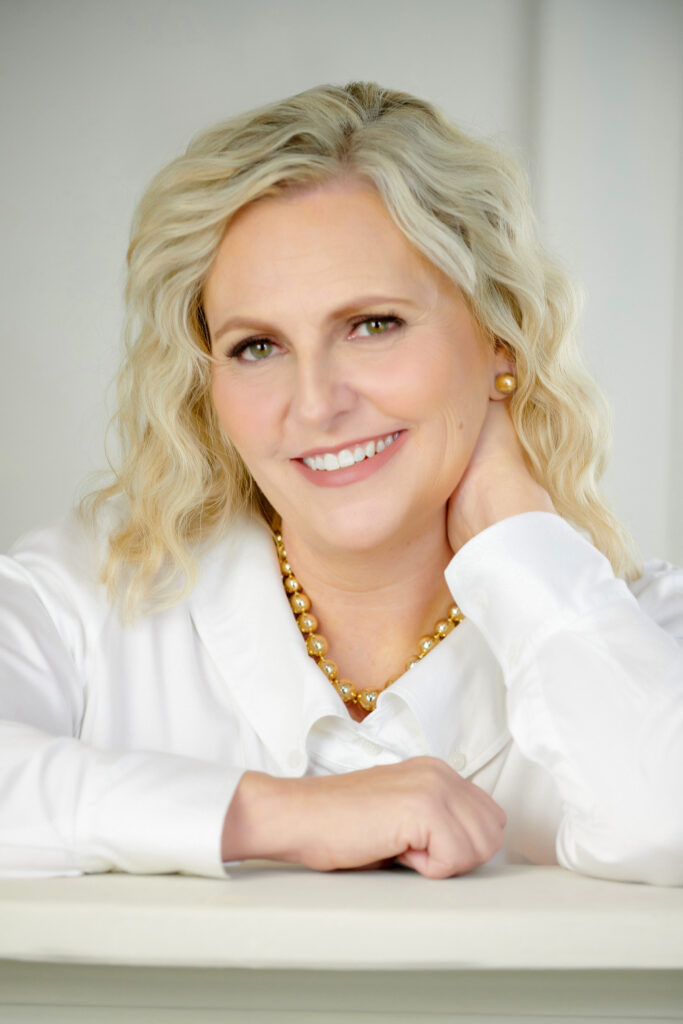
Marie's nominator said:
"Marie is the leader of a support group for patients with Cushing’s. But she isn’t just that, she is so much more. Not only does she bring together, support, and truly care about people with Cushing’s, but she is a strong advocate for those with the disease. She is the founder of the Conley Cushing’s fund, too!"
This is what Marie told us:
What’s your story? Why did you start doing what you’re doing, how long have you been doing it? Why you got involved?
My journey began in 2012 when I was diagnosed with Cushing’s after three years of misdiagnoses and consultations with multiple specialists. Following a failed brain surgery, I underwent a bilateral adrenalectomy. Two years later, I had the lower right lobe of my lung removed due to a suspected ACTH-producing tumor. Additionally, I faced PMDD caused by a pituitary imbalance, leading to a total abdominal hysterectomy with bilateral salpingo-oophorectomy. Like most Cushing’s patients, I still continue to have daily challenges, but I will not allow this disease to define me.
In the early months after my adrenalectomy, I felt a strong need to help families understand this challenging disease, as my own family—my husband, parents, and six-year-old son—struggled to cope. I also wanted to assist medical professionals in recognizing and diagnosing Cushing’s disease earlier.
In July 2014, I founded The Conley Cushing’s Disease Fund to support patients and their families. Our mission includes creating awareness and providing advocacy training by collaborating with medical professionals, hospitals, and organizations. We aim to equip medical professionals to identify Cushing’s disease more swiftly and manage its symptoms with empathy.
Today, our support group spans six states with 75 members. We are proud to celebrate the 10th anniversary of our Kickin’ Cushing’s to the Curb awareness and fundraising event and have trained over 1,700 individuals in early diagnosis. In 2017, I advocated for creating the PA Rare Disease Advisory Council and served as its co-chair. I also serve on the Cushing’s Support and Research Foundation board.
My journey is driven by a passion for improving the lives of those affected by Cushing’s and fostering early and accurate diagnosis within the medical community.
What would you like to see happen in The Pituitary Foundation for next 30 years?
Your organization is an invaluable resource for patients with pituitary disorders, and your outreach and support are remarkable. In the next 30 years, I would love to see more materials specifically designed to support family members. Families often struggle to understand the complexities of these diseases, and they may lack the knowledge and language to provide the empathy and support their loved ones need. By offering more educational resources and guidance for family members, we can help them become better equipped to navigate these challenges together.
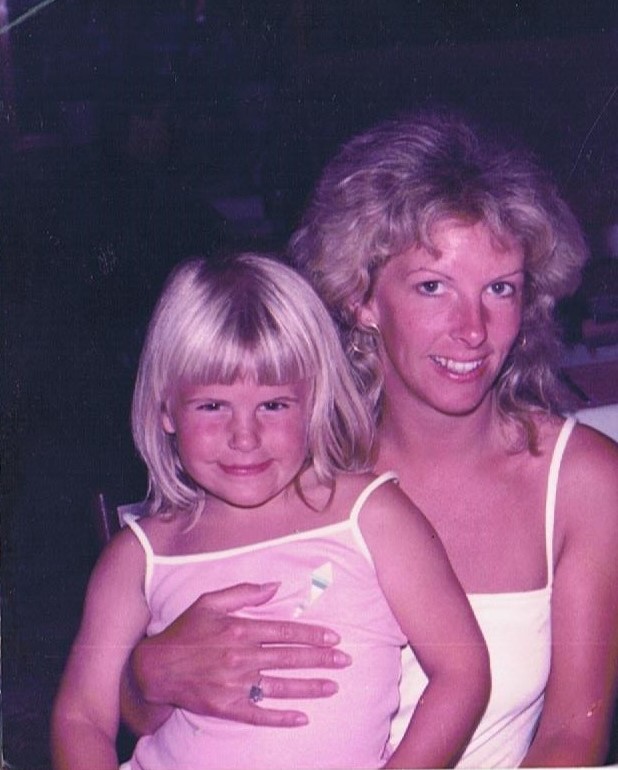
Pat’s nominators said:
“Pat has been with the foundation since 1999! She came with her wealth of excellent customer service experience and being a pituitary patient and made the foundation what is it today. She has given her time, energy and care to making the foundation function for as the head of patient support services. Her attention to detail and enthusiasm has stayed the same throughout her journey here. She is known to many, in the field of Endocrinology, volunteers, patients and corporate companies. She has dedicated her life and work to providing the best possible service to pituitary patients and their families.
Pat never stops giving her time to the groups around the country, along with being on the helpline & running the Liverpool pit pat group
Pat, is such a fantastic help, talking to newly diagnosed pituitary tumour. the info she provides is fantastic, to put people at so much ease & a brilliant knowledgeable.”
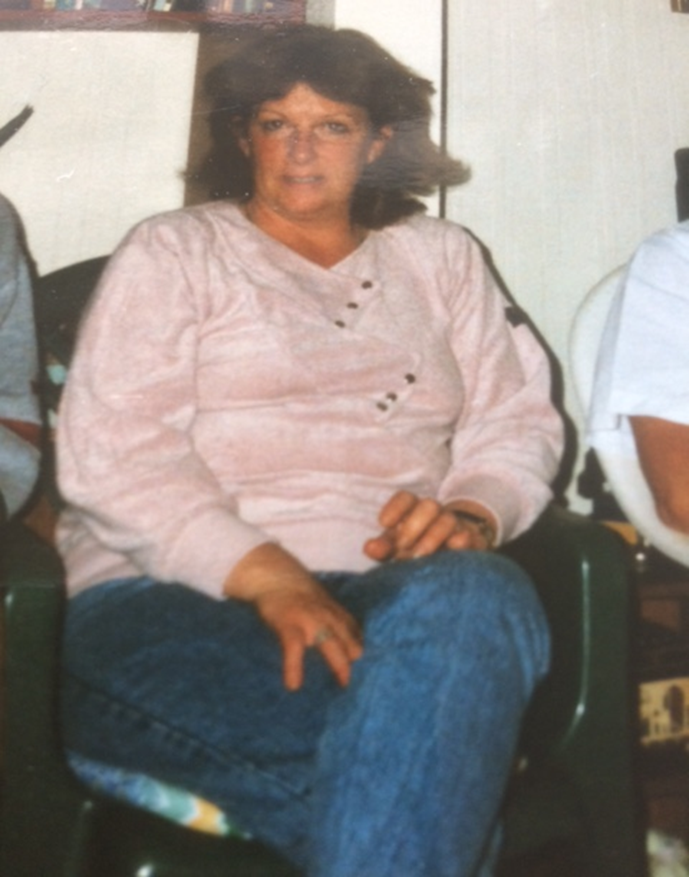
This is what Pat told us:
What’s your story? Why did you start doing what you’re doing, how long have you been doing it?
My symptoms began in 1985; periods stopped, I had an insatiable thirst and awful headaches. Saw GP, I was checked for diabetes, and I was diagnosed with migraine. I struggled through many months, drinking and weeing excessive amounts day and night, and the headaches had become excruciating.
Finally, my diagnosis, and thanks to my surgeon, Mr Foy, abscess removed, headaches resolved. My family went through such a lot too – my daughter was only seven years old at the time.
Why you got involved?
In 1995, when I first heard that this charity had been launched, I spoke to Sue Thorn, one of our Founders. I soon became a volunteer and started Liverpool Support Group in 1996. The support and information we gained was so needed, as there was nothing like this before. For our charity to have continued providing the support and information we do for 30 years is just incredible
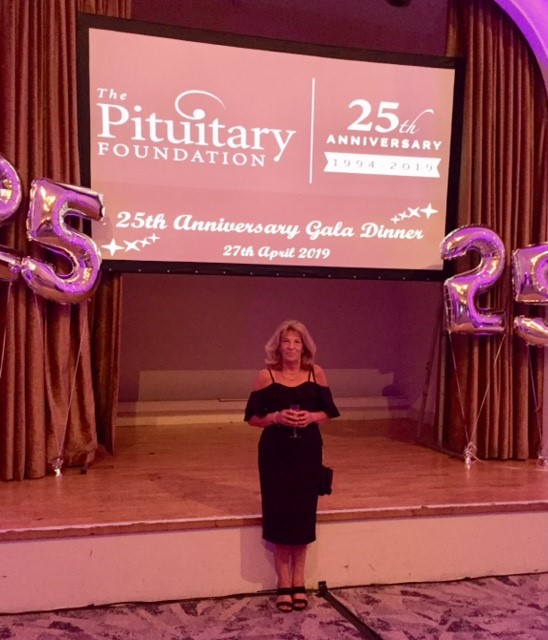
What would you like to see happen in The Pituitary Foundation for next 30 years?
I have panhypopituitarism, and try to make the most of every day (some days of course can be hard), but one small thing to look forward to can be everything. I have met so many lovely people throughout my time with The Foundation; you are brave, empowering, definitely heroes, and for me it’s been a privilege to walk our pituitary journey together. Thank you









